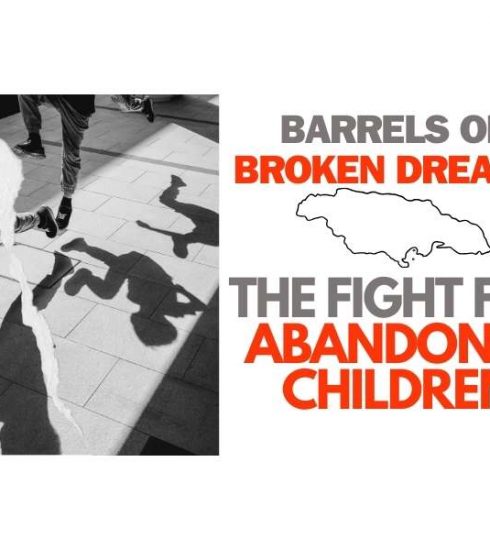Understanding the Impact: How Barrel Children Navigate Challenges
In today’s global landscape, the term “barrel children” has gained prominence and shed light on a largely marginalized group of individuals. These are children who are left behind by parents who migrate in search of a better life opportunities. How do these barrel children navigate the challenges that come with their unique situation?
Understanding the impact of being a barrel child goes far beyond simply grasping the absence of parental figures. It delves into a complex web of emotional, psychological, and socioeconomic challenges that these children face. From feelings of abandonment to the struggle of creating their own identities outside the shadows of their absent parents, their journey is undeniably arduous.
In this article, we delve into the world of barrel children, exploring the multifaceted challenges they face and how they resiliently navigate through them. Drawing on personal stories and expert insights, we aim to shed light on this overlooked phenomenon. By expanding our understanding, we can collectively work towards creating a more inclusive and supportive environment for these resilient individuals.
What are barrel children?
Barrel children, also known as left-behind children, are individuals who are left behind by parents who have migrated to other countries in search of better opportunities. This phenomenon is prevalent in many developing countries, where economic hardships and lack of job prospects force parents to seek employment abroad. These children are often left in the care of extended family members, friends, or even left to fend for themselves. Being separated from their parents at a young age, barrel children face a unique set of challenges that can have long-lasting effects on their lives.
The challenges faced by barrel children
Being a barrel child comes with a myriad of challenges that can impact various aspects of their lives. These challenges range from emotional and psychological struggles to socioeconomic disadvantages. One of the most significant challenges is the feeling of abandonment that barrel children experience. The absence of parental figures can lead to feelings of rejection, loneliness, and low self-esteem. Additionally, barrel children often lack the emotional support and guidance that parents provide, making it difficult for them to navigate their emotions and develop healthy coping mechanisms.
Education is another area where barrel children face significant challenges. The disruption caused by the absence of parents can impact their academic performance and hinder their educational opportunities. Barrel children often struggle to stay motivated in school, as they may feel disconnected and unsupported. They may also face financial constraints that limit their access to quality education, perpetuating the cycle of disadvantage.
The impact of being a barrel child on education
The absence of parental support and guidance takes a toll on the educational journey of barrel children. They often struggle to cope with the demands of school, leading to poor academic performance and a lack of motivation. The emotional distress caused by the absence of parents can further hinder their ability to concentrate and engage in their studies. As a result, barrel children are at a higher risk of dropping out of school or underperforming academically.
Moreover, the financial constraints faced by barrel children can limit their access to educational resources and opportunities. Without the financial support of their migrant parents, they may struggle to afford school supplies, uniforms, or even transportation to school. This lack of resources can further widen the educational gap between barrel children and their peers, making it harder for them to break free from the cycle of poverty.
Psychological effects on barrel children
Being a barrel child can have profound psychological effects on an individual. The absence of parental figures and the feeling of abandonment can lead to a range of emotional challenges. Barrel children often experience feelings of loneliness, sadness, and a sense of not belonging. Without the emotional support and stability that parents provide, they may struggle to develop healthy coping mechanisms and navigate their emotions effectively.
The psychological impact of being a barrel child can manifest in various ways, including low self-esteem, anxiety, and depression. These mental health issues can further hinder their ability to thrive in different aspects of their lives, such as education, relationships, and personal development. It is crucial to recognize the psychological toll that being a barrel child takes and provide the necessary support and resources to help them overcome these challenges.
Coping mechanisms and resilience of barrel children
Despite the numerous challenges they face, barrel children demonstrate remarkable resilience and adaptability. These children often develop their own coping mechanisms to navigate the complexities of their lives. They find strength in their relationships with extended family members, friends, and their communities. These support systems play a crucial role in helping barrel children cope with the emotional and psychological challenges they encounter.
Barrel children also show resilience in their ability to create their own identities outside the shadows of their absent parents. They strive to carve out their place in the world and pursue their dreams and aspirations. Through determination, hard work, and the support of their communities, they often defy the odds and achieve success in various fields. Their ability to overcome adversity serves as an inspiration and a testament to their resilience.
Support systems for barrel children
Recognizing the unique challenges faced by barrel children, various support systems have been established to provide assistance and guidance. Non-governmental organizations, community-based initiatives, and government programs have been instrumental in offering support to barrel children. These initiatives focus on providing educational resources, mentorship programs, psychological support, and opportunities for personal development.
In addition to external support, it is crucial to foster a supportive environment within communities and schools. Creating a sense of belonging and understanding can go a long way in helping barrel children navigate their challenges. By promoting empathy, education, and inclusivity, we can create a supportive ecosystem that uplifts and empowers barrel children to reach their full potential.
Initiatives and programs to help barrel children
Numerous initiatives and programs have been implemented to address the specific needs of barrel children. These initiatives aim to provide educational support, mentorship, and psychological counseling. One such initiative is the establishment of after-school programs that offer academic assistance, life skills training, and emotional support for barrel children. These programs provide a safe space for barrel children to thrive and develop crucial skills for their future.
Furthermore, mentorship programs connect barrel children with role models who can guide and inspire them. Mentors offer support, encouragement, and advice, helping barrel children build resilience and self-confidence. These programs play a vital role in nurturing the potential of barrel children and providing them with the necessary tools to overcome their challenges.
Success stories of barrel children
Amidst the challenges and hardships, there are countless success stories of barrel children who have defied the odds and achieved remarkable accomplishments. These success stories highlight the resilience and determination of barrel children. From excelling academically to pursuing successful careers, these individuals prove that being a barrel child does not define their future.
By showcasing these success stories, we inspire hope and demonstrate the potential that exists within barrel children. These stories also serve as a reminder of the importance of providing support and resources to help barrel children unlock their full potential.
The role of the community in supporting barrel children
The support of the community plays a crucial role in creating a nurturing environment for barrel children. Community members can offer emotional support, mentorship, and educational resources. By fostering a sense of belonging and understanding, communities can empower barrel children to overcome their challenges and reach their goals.
Community initiatives, such as awareness campaigns and workshops, can help educate the public about the unique struggles faced by barrel children. By increasing understanding and empathy, communities can work together to create a more inclusive and supportive environment for these resilient individuals.
Creating a better future for barrel children












